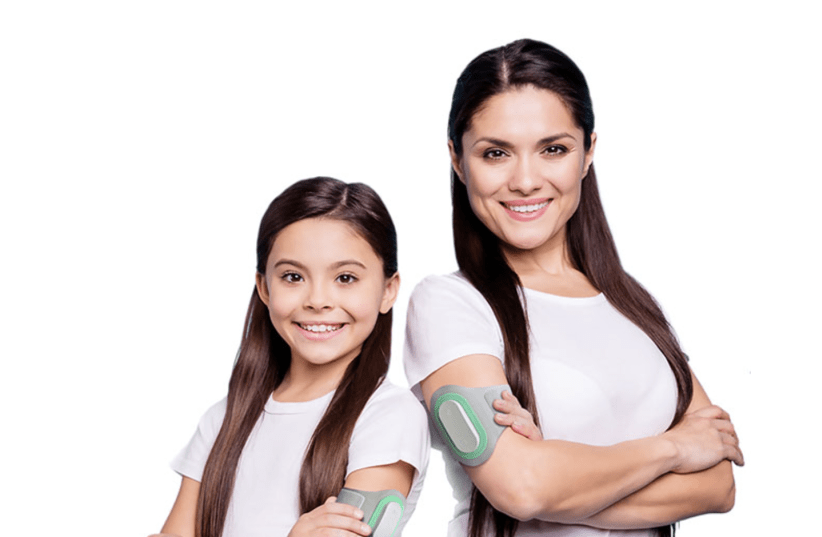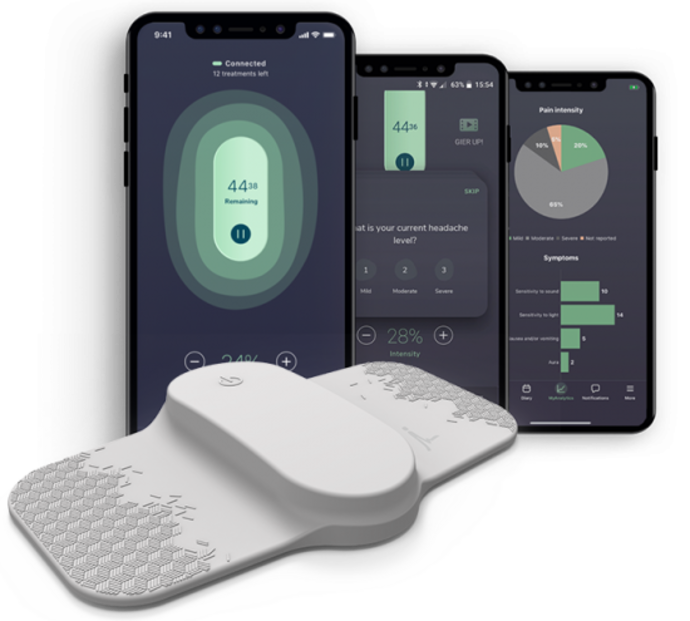Theranica’s Nerivio remote electrical neuromodulation (REN) device that has been approved by the Food and Drug Administration to “zap” away migraines, was proven effective, safe and sustainable in what is believed to be the world’s largest prospective real-world study of such a treatment.
The results of an analysis of more than 23,000 treatments by thousands of patients over nearly 20 months, published last week in the peer-reviewed Frontiers in Pain Research journal, found that REN, when administered by the device, performs well across multiple measured parameters.
"Migraine, a disabling chronic condition, affects 12% of the population," said Dr. Jessica Ailani, Director of the MedStar Georgetown Headache Center and Professor of Clinical Neurology in the Department of Neurology, and lead author of the study. "While some people with migraine get relief from prescribed or even over-the-counter medications, others do not respond to medications, or cannot tolerate their side effects. There are also people who cannot use medications due to contraindications or being at risk of drug-drug interactions or medication overuse headache.
“The current analysis of a very large group of patients, over a long period of time and multiple treatments, reinforces that REN provides a safe, efficacious and stable treatment option for acute treatment of migraine, both as a standalone and as an adjunct therapy,” she continued. “This is a very important component in the migraine therapy toolbox."
Specifically, in 80% of treatments, Nerivio was used either as a standalone treatment or with over the counter – as opposed to prescription – medicine. In 66% of treatments, no medication was required at all.
“This study and its results have both clinical and commercial implications,” said Theranica CEO Alon Ironi. “For health insurance plans, they need to know that if they cover Nerivio, they benefit from cutting down their expenses on prescribed medications for migraine, which is economically a great deal for them, especially with respect to branded (non-generic) medications. The results show exactly that – patients using Nerivio get persistent relief over a long period of time and exhibit a dramatic reduction in using medications.”
In addition, out of 2,514 patients included in the efficacy analysis, 32% of the episodic migraine patients and 21% of the chronic migraine patients, achieved pain freedom two hours post treatment in most of their treatments, according to the study. More than 65% of participants experienced pain relief after two hours.
The results, said Ironi, were directly aligned with previous clinical studies and, more importantly, were consistent over many months.
Regarding dosage, the study evaluated if a patient would require increasing the device’s intensity overtime and found that there is no need to increase the electrical energy overtime.
Finally, in the safety analysis, the number of adverse events was even more minimal than in the original controlled clinical trials: There were 59 adverse events out of 2,368 participants, 56 of which were mild and three moderate. There were no severe events.
“From the standpoint of healthcare organizations considering incorporating this therapy into procedures, now they have proof that the results shown in controlled studies are repeatable in real life,” Ironi said.
The Nerivio device, which is FDA approved for individuals over the age of 12, is placed on the upper arm at the start of a migraine attack. Using REN, it triggers conditioned pain modulation (CPM). Patients control it via a smartphone app. The device also includes a built-in migraine diary, which patients are asked to use before and after treatment.
Since the device received FDA approval in May 2019, the company has continued to conduct research but mainly to receive additional layers of approval for other indications. This study is the largest of its kind and was conducted using prospective data recorded in real time by users in the device’s electronic diary.
It was run in collaboration with Ailani who runs the MedStar Georgetown Headache Center, as well as Dr. Amaal Starling from the Mayo Clinic’s Department of Neurology.
Theranica is an Israeli-American digital therapeutics company based in Netanya and in Montclair, New Jersey. In mid-December, the former president and CEO of Blue Cross & Blue Shield Association, Scott Serota, joined the company’s board of directors.
To date, some 25,000 Americans are using Nerivio and, according to Ironi, “every month we are adding more and more patients.”
This latest study, he said, which is expected to get the attention of both providers - mainly neurologists - and health insurance professionals, could accelerate the process of patients getting access to this therapy.
“This could be a game changer with respect to the level of acceptance of this new therapy by insurance companies in the US,” Ironi said.
This article was written in cooperation with Theranica.

